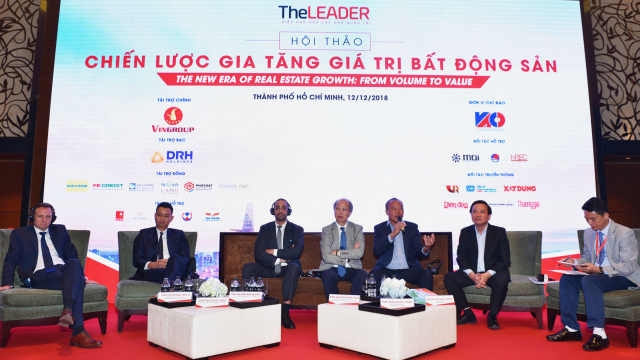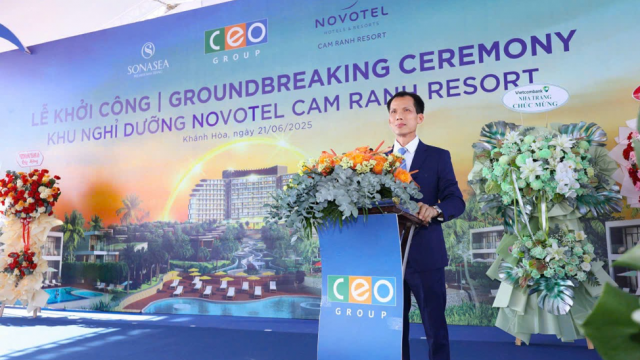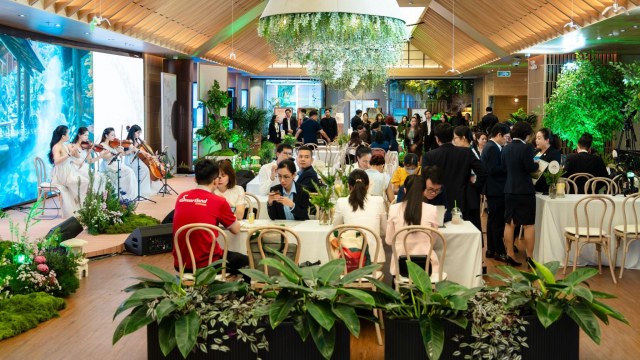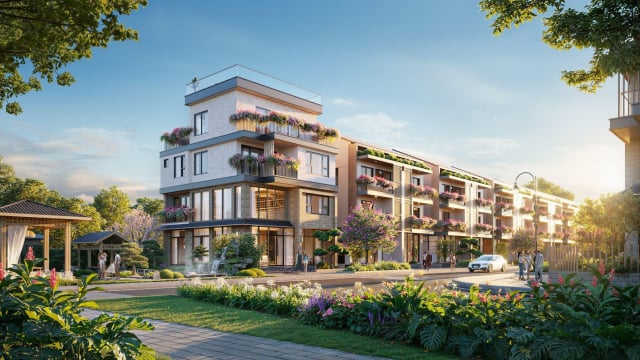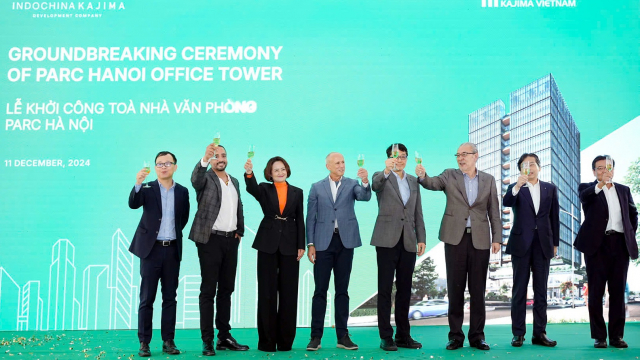Property
Branded residences to blossom in Vietnam's fast growing cities
Branded residence is a good development concept in emerging markets with immature residential property sectors through offering more competitive products.

In broad terms, branded residences are normally a partnership between a brand (often a hotel operator) and a developer.
The brand grants a license to the developer to market and sell residences incorporating their brand. Residences are sold to private individuals or entities, who may use the property for their own use, or let it through the hotel’s rental scheme subject to conforming to the required furniture and fitting specification.
Urban branded residences are typically a residential product that offers hotel-like facilities and services for the residents. They are typically associated with a third-party brand, which could be hotel brands such as Ritz Carlton or Mandarin Oriental but also non-hotel brands such as Porsche or Aston Martin.
On the prospect of branded residence in Vietnam, Mauro Gasparotti, Director of Savills Hotels Asia Pacific said, “We believe there is tremendous opportunity for developers to embrace this concept and apply it in urban cities as competition in the residential sector will be fiercer and buyers increasingly demand for alternative products."

He added: "Branded Residences are attractive through offering the added value of a brand and enhancing experiences for the homeowners."
"Vietnam is expected to see the growth of this concept in the upcoming time, especially in fast growing cities such as Hanoi, HCMC, Danang. However, it requires a thorough understanding of the concept and structure of the involved parties,” he said.
There are a multitude of reasons that the branded residence sector has grown so rapidly in the last two decades.
Brand association instils buyer confidence, and is especially attractive to globally-mobile, time-poor individuals seeking a high service offer, hassle-free ownership and prospect of rental returns when not in occupancy.
Hoteliers benefit from diversified schemes and additional income streams, while deepening their relationship with their customers. For developers, a brand brings profile, and may also lead to price premiums.
The leading real estate consultancy firm Savills' analysis suggests that on average, branded residences achieve a price premium of 31%, but this varies significantly by location. When a luxury brand is given to a residential product, it benefits from the same qualities of that brand by association and design.
Purchasers of branded residences are assured of a quality product, limited in supply that shares in the values of the brand. Pre-existing brand awareness means that the residential product may enjoy greater profile and attract a larger demand base. For this reason, purchasers are willing to pay more for branded than non-branded property.
It is anticipated that there are more than 400 branded residential schemes globally, with a combined stock of approximately 55,000 residential units. The sector is dominated by hotel brands, which account for 85% of schemes.
In terms of global distribution, the US is the biggest single country market, home to 32% of schemes (130). Asia Pacific hosts 30% of schemes (120), of which China is the single biggest market with 7% of schemes (30). Europe represents 13% of the market (51 schemes). New York, Miami, Dubai and Bangkok are the biggest city markets, all with at least 15 projects. Branded residences are commonly located in either urban cores or resorts (74% and 26% respectively), and in either environment the development is usually situated in a prime location.
"The engagement of a brand ensures the quality of design, security and high levels of services. Branded Residences have grown rapidly in big cities in the US, Hong Kong and Bangkok," Mauro Gasparotti said.
Conference on new era of real estate growth: From volume to value
Hai Phong industrial property powers up with new project from Indochina Kajima
The project Core5 Hai Phong from Indochina Kajima and Itochu Corporation will deliver approximately 80,000 square metres of world-class ready-built factory for lease, handover expected in the first quarter of 2027.
A decade of unprecedented apartment price surge
A decade of relentless apartment price growth has pushed the dream of homeownership further out of reach for Vietnam’s middle- and lower-income earners.
Essensia Parkway sells out within hours, marking an outstanding partnership with WorldHotels
Essensia Parkway makes significant impact in the high-end real estate market as 100 per cent of the limited collection was successfully registered within just a few hours at the launching event with the theme “Live lux-well, in a truly refined world”.
Essensia Parkway gains global prestige through WorldHotels - Phu Long collaboration
Essensia Parkway is set to mark a significant milestone as the first branded residences project in Ho Chi Minh City to be operated by WorldHotels – one of the finest portfolios of independent hotels and resorts within BWH Hotels.
Indochina Kajima breaks ground on Grade A office building in Hanoi’s emerging hub
Parc Hanoi marks Indochina Kajima's first office-for-lease project in its $1 billion investment plan in Vietnam.















